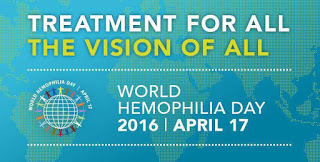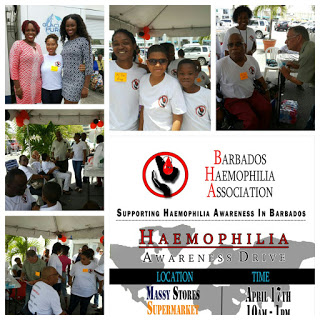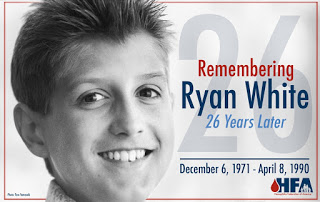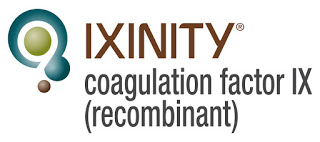Resiliency Key at HFA’s Symposium 2016
| Jane Cavanaugh Smith (middle), with CoRe managers |
count the number of times I have looked to her for education, resources, and
support. So, it is such an honor to be a
guest blogger for HemaBlog. My name is Jane Cavanaugh Smith and I am a Biogen Community
Relations (CoRe) Manager. My son has hemophilia and we were fortunate to
connect early with our local chapter. This led to an unexpected and extremely
rewarding career with the New England Hemophilia Association, and later, the
Hemophilia Federation of America (HFA). When Biogen introduced CoRe Managers several
years ago, I watched with interest as their team grew. The fact that a CoRe
Manager’s sole job is to support our community—to listen, educate, connect, advise,
and serve–confirmed that Biogen was the place for me.
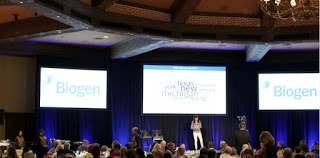 |
| Jane speaking at HFA |
We Are Resilient” beautifully captured the strength of our community because resiliency
is about bouncing back. Individuals and families have to regularly overcome obstacles,
but sometimes the challenges are overwhelming. That’s when we turn to each
other in the open, honest, and supportive environment that HFA provides. These
connections live on long beyond the Symposium.
variety of sessions and activities aimed to feed mind, body, and soul.
Knowledge is power and key to weathering rocky times. Activities included daily
Zumba sessions, aquatic therapy, yoga, and a Health & Wellness Lounge.
Session topics included women’s issues, advocacy, insurance, treatments, and
inhibitors. A few personal favorites include the Awards Luncheon, the
Remembrance Ceremony, the rap sessions, seeing kids in matching shirts and
holding hands, and all the hugs, tears, and laughs.
At
Biogen, we took the theme to heart, too. Each day at HFA, we tried to provide
families with new opportunities to meet, learn, and be resilient together. It
was a blast. The Chapter Challenge games brought out altruism and humor as
visitors tried to win donations for their local chapter. The Biogen Peer videos (click here, and here) showcased inspiring role models. Many visitors inquired about our therapies,
so it gave me and my fellow CoRe Managers countless opportunities to get to
know even more people in the hemophilia community. I like to think that
resilient people see meaning and purpose in what they do. I definitely see that in my fellow CoRes. We
build resilience by showing our vulnerability, empathy, understanding, and
appreciation, and gratitude for each other.
 |
| Jane interviewing Chris Bombardier |
Thought. I’ve never spoken in front of a large crowd, but I knew that I was surrounded
by friends. Our keynote speaker, Chris Bombardier, shared his inspiring story
of overcoming challenges despite long odds. Chris has severe hemophilia B but
is on a quest to climb the world’s seven summits. Hearing his motivation and
drive, he will surely complete the remaining two.
inspire our community. As the program came to a close, I looked over at my son
who is the source of my strength and hope. I am deeply thankful for this
community. Together we celebrate the highs and find comfort during lows. Together
we are resilient.
 |
| Biogen’s CoRe managers at HFA |
This blog was
sponsored by Biogen for educational purposes.


